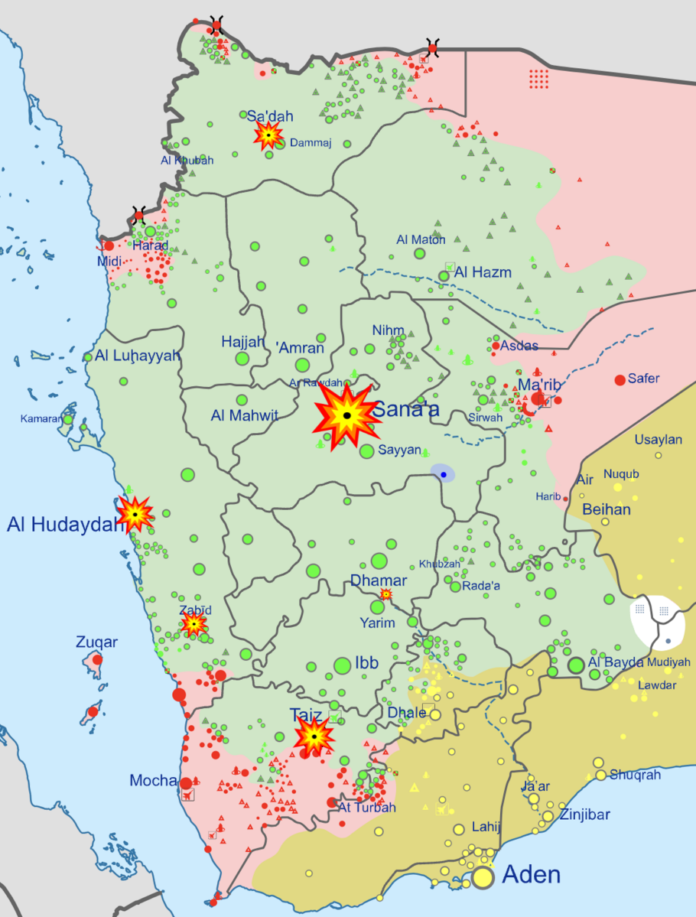Overnight the United States and the United Kingdom conducted air strikes against Houthi rebel targets. This action was a response to the Houthi rebels’ attacks on shipping in the Red Sea, a crucial global trade route. The Houthis, backed by Iran, have been targeting Western sea vessels in the area, ostensibly to pressure Israel to cease its operations in the Gaza Strip.
The strikes, which reportedly resulted in casualties among the Houthis, have raised concerns about an escalation of conflict in the region. The Houthis warned that all US and British assets are now considered “legitimate targets” in response to the strikes. This statement indicates a potential for further retaliation and possibly a broader conflict.
The US and UK military actions were supported by a coalition of countries adversely affected by the Houthi attacks on commercial vessels in the Red Sea. The coalition includes Australia, Bahrain, Canada, Denmark, Germany, the Netherlands, New Zealand, South Korea, and the United States. These countries have emphasized their commitment to maintaining freedom of navigation and the safety of international commerce in the region’s critical waterways.
The situation in Yemen has been complex and fraught with regional and international implications. The Houthis have expressed their hostility towards Israel and have aligned themselves with Hamas in its conflict with Israel. The recent military actions by the US and UK mark a rare instance of direct Western involvement in a conflict that has primarily been a regional issue involving Middle Eastern countries.
It’s important to note that this development comes amid ongoing efforts to resolve the conflict in Yemen, where a Saudi-led coalition has been fighting the Houthis. The situation remains fluid, with potential impacts on regional stability and international relations.
Image is licensed under Creative Commons Attribution 4.0 International license and was created by Personisinsterest.










